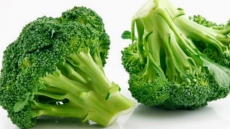The testosterone rush in athletes has nothing to do with winning, finds an interesting research, adding that testosterone starts increasing even before the competition begins.
"We found an increase in testosterone during a race regardless of the athletes' finish time. In fact, one of the runners with the highest increases in testosterone finished with one of the slowest times," said graduate student Kathleen Casto from Georgia-based Emory University.
The study, which analysed saliva samples of participants, also showed that testosterone levels rise in athletes during the warm-up period.
"It is surprising that competition itself, irrespective of the outcome, substantially increases testosterone," added lead researcher David Edwards, professor of psychology at Emory University.
Participants in the study were consenting members of the 2010 and 2011 Emory varsity men's and women's cross country teams.
Each participant provided three saliva samples: One before warming up (baseline), one after warming up and a third immediately after crossing the finish line.
Testosterone went up from the baseline for both men and women during the warm-up while levels of stress hormone cortisol did not.
At the end of the race, both men and women participants showed the expected increases in cortisol and surges in testosterone.
Neither hormone, however, was related to finish time.
Higher baseline levels of testosterone have been linked to long-term strength and power such as higher status positions in companies.
"Although short-term surges of testosterone in competition have been associated with winning, they may instead be indicators of a psychological strength for competition, the drive to win," Casto explained.
The research was published in International Journal of Exercise Science.






